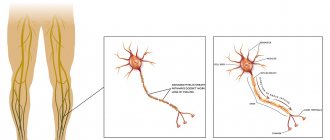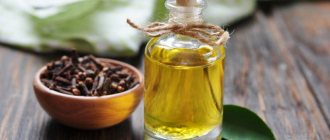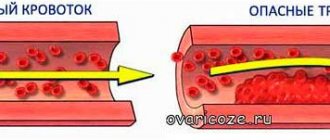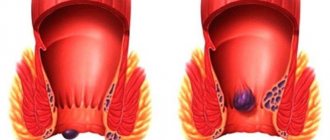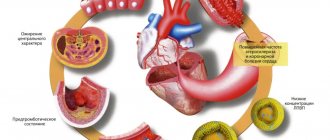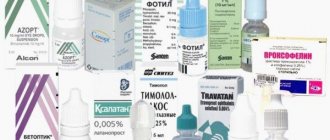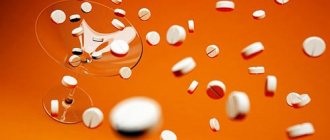Antiplatelet agents - blood thinners
Antiplatelet agents are a group of drugs that prevent blood clots.
They act at the stage of blood clotting, during which sticking, or aggregation, of platelets occurs. They inhibit (suppress) the process of gluing together blood platelets, and coagulation does not occur. Different drugs in this group have different mechanisms of action to obtain an antiplatelet effect.
Today, medicine uses both long-known blood thinners and modern drugs that have fewer contraindications and less pronounced side effects. Pharmacology is constantly working on new drugs, the characteristics of which will be better than those of the previous ones.
Who is prohibited from receiving
The medications are prescribed by the doctor. Medicines have certain contraindications that you should be aware of. Treatment with antiplatelet agents is prohibited in the following cases:
- with peptic ulcer of the digestive system at the acute stage;
- if there are problems with the functioning of the liver and kidneys;
- patients with hemorrhagic diathesis or pathologies that increase the risk of bleeding;
- if the patient has been diagnosed with severe heart failure;
- after an attack of hemorrhagic stroke.
Pregnant women during the third trimester and young mothers who are breastfeeding should not take antiplatelet agents. It is necessary to consult a doctor or carefully read the instructions for use of medications.
List of antiplatelet agents and their classification
All antiplatelet agents can be divided into groups:
- Acetylsalicylic acid and its derivatives (Trombo-AS, Aspirin cardio, Acecardol, Cardiomagnyl, Aspicor, CardiASK) and others.
- ADP receptor blockers (Clopidogrel, Ticlopidine).
- Phosphodiestrase inhibitors (Triflusal, Dipyridamole).
- Glycoprotein receptor blockers (Lamifiban, Eptifibatide, Tirofiban, Abciximab).
- Inhibitors of arachidonic acid metabolism (Indobufen, Picotamide).
- Medicines based on the Ginkgo Biloba plant (Bilobil, Ginos, Ginkyo).
- Plants with antiplatelet properties (horse chestnut, blueberries, licorice, green tea, ginger, soy, cranberry, garlic, ginseng, red clover, pomegranate, St. John's wort, onion and others).
- This category also includes vitamin E, which exhibits the same properties.
Now - in more detail about some of the most common drugs.
Aspirin
First on the list is acetylsalicylic acid, or aspirin, the most famous drug that is widely used not only as an antiplatelet agent, but also as an anti-inflammatory and antipyretic. The mechanism of action of aspirin is to suppress the biosynthesis of thromboxane A2, which is found in platelets. Thus, the adhesion process is disrupted and the blood clots more slowly. In large doses, acetylsalicylic acid also affects other coagulation factors, which only enhances the anticoagulant effect.
Aspirin has different indications, but most often it is prescribed to prevent blood clots. The drug is well absorbed in the stomach and is excreted by the kidneys within 20 hours. The effect occurs within half an hour. Should be taken only after meals, otherwise there is a risk of developing stomach ulcers. Available in tablet form.
Bronchial asthma should be added to the contraindications described above.
Aspirin causes many side effects, including:
- stomach pain;
- nausea;
- gastrointestinal ulcer;
- headache;
- allergies;
- disorders of the kidneys and liver.
Operating principle
The drugs block the formation of blood clots in blood vessels and thin the blood. Each medicine has a specific effect:
- Acetylsalicylic acid, Triflusal are the best means in the fight against platelet aggregation and clot formation. Contain active substances that block the production of prostaglandins. The cells take part in starting the blood coagulation system.
- Triflusal and Dipyridamole have an antiplatelet effect, increasing the content of the cyclic form of adenosine monophosphate in platelets. The process of aggregation between blood cells is disrupted.
- Clopidogrel contains an active substance that can block adenosine diphosphate receptors that are located on the surface of platelets. Clots form more slowly due to the deactivation of blood cells.
- Lamifiban, Framon are drugs that block the activity of glycoprotein receptors located on the membrane of blood cells. Due to the active influence of the active substances, the likelihood of platelet aggregation is reduced.
There is a large list of drugs used to treat and prevent thrombosis. In each individual case, the doctor selects the most effective treatment, taking into account the characteristics of the patient and the condition of his body.
List of drugs
Active ingredient: acetylsalicylic acid (in Latin: Acidum acetylsalicylicum, colloquial: aspirin):
- ASK-cardio
- Aspinat
- Aspinat 300
- Asinat cardio
- Aspinat "York"
- CardiASK
- Plidol
- Thrombogard
- Thrombo ACC
- Mikristin
- Colfaritis
Active ingredient clopidogrel (Clopidogrelum):
- Aggregal
- Sylt
- Deplatte
- Detromb
- Cardogrel
- Kardutop
- Clapitax
- Clopidex
- Clopidogrel
- Clopidogrel-Akrikhin
- Clopidogrel-NANOLEK®
- Clopidogrel-Richter
- Clopidogrel-SZ
- Clopidogrel-TAD
- Clopidogrel-Teva
- Clopidogrel bisulfate
- Clopidogrel hydrosulfate
- Clopidogrel bisulfate
- Clopyletes
- Lirta
- Lopirel
- Listab
- Plogrel
- Pidogrel
- Plavix
- Plagril
- Tromborel
- Trocken
- Targetek
- EGITHROMB
- Fluder
Active ingredient : ticlopidine (Ticlopidinum):
Active ingredient alprostadil (Alprostadilum):
- Alprostadil
- Alprostan
- Alprostan Zentiva
- VAP 20
- VAP 500
- Muse
Active ingredient : dipyridamole (Dipyridamolum):
- Dipyridamole
- Dipyridamole-FPO
- Chime
- Parsedyl
- Persantine
- Sanomil-Sanovel
Active ingredient : methylethylpyridinol (Methylaethylpiridinolum):
- Vixilin
- Methylethylpyridinol
- Methylethylpyridinol-Eskom
- Methylethylpyridinol hydrochloride
- Emoxy optic
- Emoxybel
- Emoxipin-AKOS
- Emoxipin-Akti
- Emoxipin
- Cardioxipin
Active ingredient : xanthinol nicotinate (Xantinoli nicotinas):
- Complamine
- Xanthinol nicotinate
- Xanthinol nicotinate-UBF
- Xanthinol nicotinate injection solution 15%
- Xanthinol nicotinate tablets 0.15 g
Other drugs (active ingredient is indicated in parentheses):
- Agrilin (Anagrelide)
- Brilinta (Ticagrelor)
- Ventavis (Iloprost)
- Ibustrin (Indobufen)
- Integrilin (Eptifibatide)
- ReoPro (Abciximab)
- Ticagrelor (Ticagrelor)
- Thromboreductin (Anagrelide)
- Cilostazol (Cilostazol)
- Effient (Prasugrel)
Combination drugs with antiplatelet effect
Modern pharmacology offers patients in need of antiplatelet treatment drugs that have a combined effect. Such drugs contain several antiplatelet agents, which mutually enhance each other’s effects.
Among these drugs:
Agrenox which contains Aspirin and Dipyridamole.
Aspigrel with Aspirin and Clopidogrel in the composition.
Coplavix. Its composition is similar to that of Aspigrel.
Cardiomagnyl, which contains Aspirin and magnesium.
Antiplatelet agents are drugs that are widely used in the treatment of various pathologies. Cardiologists, neurologists, and vascular surgeons prescribe them to their patients.
Professor Obrezan A.G. Antiplatelet agents for cardiovascular pathology:
Galyavich A.S. — antiplatelet therapy for ACS: problems and solutions:
Author of the article: Volkov Dmitry Sergeevich | Ph.D. surgeon, phlebologist
Education: Moscow State Medical and Dental University (1996). In 2003, he received a diploma from the educational and scientific medical center for the administration of the President of the Russian Federation.
7 Reasons to Eat More Protein Every Day!
10 Proven Reasons to Eat Chia Seeds Every Day!
A complete blood count (CBC) is the first test that begins the diagnosis of diseases or a preventive examination by a doctor as part of an annual medical examination. Without this simple but important test, it is impossible to objectively assess a person’s health status. OAC is otherwise called general clinical or.
A biochemical blood test (“biochemistry” or simply BAC) is a highly informative laboratory test that allows one to judge the condition and functional status of most internal organs and systems of the human body. Along with a general or general clinical analysis, this blood test is carried out at the first stage.
Urine is a biological fluid, the end result of a natural process of human life. It is formed in the human kidneys in two complex stages. Together with the exiting fluid, the following is excreted from the body: urea, as the end product of protein metabolism, electrolytes, uric acid, as well as vitamins and hormones
Alanine aminotransferase, or ALT for short, is a special endogenous enzyme. It is included in the group of transferases and the subgroup of aminotransferases. The synthesis of this enzyme occurs intracellularly. A limited amount of it enters the blood.
AST, AST, AST or aspartate aminotransferase is the same concept, denoting one of the enzymes of protein metabolism in the body. This enzyme is responsible for the synthesis of amino acids that make up cell membranes and tissues. AST does not manifest itself in all organs.
Use of antiplatelet agents
Indications for use
Antiplatelet agents are used for the following pathological conditions:
- Cardiac ischemia
- Atherosclerosis
- AG
- Unstable exertional angina
- For prevention or after an ischemic stroke, to prevent complications
- After operations on the circulatory system
- Obliterating atherosclerosis of the lower extremities
- If you are prone to thrombosis
Use with other drugs
Medicines that enhance the effect of antiplatelet drugs:
- NSAIDs (ibuprofen, diclofenac, naproxen)
- Cytostatics, drugs that suppress the activity of red bone (Leflunamide, Hydrochloroquine, Adalimumab, Infliximab, Etanercept, Sulfasalazine, Penicillamine, Methotrexate, Azathioprine, Mycophenolate)
- Other antiplatelet drugs
- Anticoagulants
- Selective serotonin reuptake inhibitors (SSRIs)
Medicines that reduce the effect of anticoagulants:
Diseases that enhance the effect of antiplatelet drugs:
- Chronic renal failure
- Liver disease
- Malignant blood diseases
- Chemotherapy
- CHF
- Hemophilia and von Willebrand disease
- Idiopathic thrombocytopenic purpura.
Antiplatelet agents for insect bites
If an insect bites you, you need to crush the tablet (you can mix it with a small amount of water) and apply it to the bite site. In a couple of minutes, the symptoms of inflammation and pain will go away.
Antiplatelet agents for beautiful skin
Due to their anti-inflammatory effect, these drugs are good to use to combat acne and blackheads, but the tablets should not be used internally, but topically. Antiplatelet agents are also widely used in the fight against calluses and corns, softening hard skin.
Antiplatelet agents in veterinary medicine
Antiplatelet agents are sometimes used with an analgesic or anticoagulant function in veterinary medicine, primarily in dogs and horses. However, they have not received widespread use due to the large number of side effects.
Contraindications for use
Antiplatelet agents are absolutely contraindicated in the following conditions:
- Liver diseases
- Kidney disease
- CHF
- Stomach or duodenal ulcer
- Diseases associated with the risk of bleeding
- Pregnancy and lactation period
- Thrombocytopenia
- Individual intolerance
Contraindications
Antiplatelet agents are drugs whose names are known to many due to their widespread use. The main function of this group is the prevention of thrombosis. Antiplatelet agents are drugs that are effectively used for a number of cardiovascular pathologies, as well as after surgical operations (heart valve replacement).
| Indication | List of antiplatelet agents |
| Coronary artery bypass graft | “Aspirin”, “Sulfinpyrazone”, “Indomethacin” |
| Atherosclerosis, artificial valves, coronary heart disease | “Dipyridamole”, “Ticlopidine”, “Suloctidil”, “Piracetam”, “Cetediel” |
| Unstable angina, atherosclerosis | “Prostacyclin” |
Prescribing antiplatelet agents requires a thorough history taking, which includes information about concomitant pathologies. If you have a disease that is a contraindication for taking drugs from this group, it is necessary to adjust the treatment plan. In such cases, an individual selection of drugs and their dosage is carried out, and therapy is carried out under the strict supervision of a doctor. In no case should self-prescription of antiplatelet agents be allowed, as the consequences can be disastrous.
List of contraindications:
- allergy;
- hemorrhagic diathesis;
- risk of bleeding;
- severe liver and kidney failure;
- history of arrhythmias;
- severe arterial hypertension;
- obstructive diseases of the respiratory system;
- children's age (for most drugs).
In addition, many antiplatelet agents (the list of drugs is discussed in this article) are contraindicated during pregnancy and lactation. During this period, preference should be given to medications that are safe for both the child and the mother.
Different drugs may have different contraindications. The general ones include the following:
- Violations in the functioning of the liver and kidneys of a pronounced nature.
- Stomach ulcer.
- Diseases associated with the risk of bleeding.
- Heart failure with severe manifestations.
- Hemorrhagic stroke.
- Pregnancy and breastfeeding time.
Pathologies for which you need to take antiplatelet agents:
- coronary heart disease (CHD);
- transient ischemic attacks;
- abnormalities in the blood flow of the cerebral vessels of the brain;
- after an attack of an ischemic stroke;
- stroke prevention;
- arterial hypertension - hypertension;
- after surgical intervention on the heart organ;
- diseases of the lower extremities of an obliterating nature.
All medications have contraindications. When taking antiplatelet agents this is:
- peptic ulcer of the digestive tract;
- ulcer in the duodenum;
- hemorrhagic rashes;
- disturbances in the functionality of liver and kidney cells;
- organ failure - heart;
- stroke attack in hemorrhagic form;
- period of intrauterine formation of the baby;
- period of breastfeeding. Antiplatelet drugs themselves can provoke gastric ulcers.
When used for bronchial asthma, antiplatelet drugs can cause bronchial spasm, which will become a serious complication of this pathology.
GPR blockers
Agents that reduce the sensitivity of platelet glycoprotein receptors act mildly and are relatively rarely tolerated.
The basis of the influence of medications of this type is the ability, relatively speaking, to instruct platelets not to interact with factors that provoke aggregation, that is, their sticking together.
The rheological properties of blood change slightly; the effect of HPR blockers is high, but short-lived. Therefore, it makes sense to use the remedy either within the framework of acute conditions or to select a clear regimen and dosage.
Among the names are Eptifibatide (Intergrilin), Tirofiban, and others.
Medicines of this type are most widely used when used in patients with acute conditions in a hospital. For example, with coronary insufficiency.
It also makes sense to use them in a system with classical medications based on Aspirin.
What are disaggregants in medicine?
Antiplatelet agents, or disaggregants, are a modern group of drugs that block the formation of blood clots in blood vessels.
This allows you to prevent the development of myocardial infarction, as well as other diseases associated with thrombus formation.
Such effects make it possible to use this class of medications for coronary heart disease, disorders of the blood supply to the brain and other organs.
The prescription of antiplatelet agents should be carried out only by the attending physician after examining the patient and identifying all his indications and contraindications for this type of therapy. Under no circumstances should you use medications on your own, as this may lead to the development of side effects of treatment or progression of the underlying disease.
What are antiplatelet agents
So, what are antiplatelet agents? This is a group of medications that prevent the formation of blood clots. The active substances contained in these medications prevent platelets from sticking together, preventing blood clotting.
In addition to antiplatelet agents, disaggregants are commonly heard, what are they? These are drugs with a similar effect and are often prescribed to patients with angina pectoris.
Anticoagulants have the same principle of action, but are more aggressive and have more side effects. Pharmacology is rapidly developing and antiplatelet agents and anticoagulants are becoming more effective and safer for use.
Main indications
Antiplatelet agents are prescribed by a doctor for:
- ischemia;
- hypertension;
- after heart surgery;
- vascular diseases of the legs;
- prevention of cerebral stroke or recovery from it.
Important! All drugs in this group are prescribed only with a doctor's prescription. Unauthorized use of medications without taking into account the duration of the course and dosage is fraught with serious side effects.
Mechanism of action of antiplatelet agents
When tissue or blood vessels are damaged, blood begins to clot to prevent severe bleeding; this occurs when platelets stick to red blood cells. As a result, clots appear, also called thrombi. This is a normal reaction of the body to injury.
But sometimes the process of thrombosis occurs for other reasons. Any damage to blood vessels and inflammatory processes in them provoke thrombus formation directly inside the bloodstream. Blood clots gradually clog the lumen of the vessel, resulting in impaired blood circulation.
Depending on the location of such clogged areas, the consequences may be different. The most dangerous thing is blood clots in the brain; blockage of blood vessels leads to stroke. Mortality after an attack reaches 50% within a year.
Antiplatelet agents, as milder analogues of anticoagulants, interfere with thrombus formation by thinning the blood. People prone to vascular diseases sometimes have to take these drugs throughout their lives. Anticoagulants are used in more emergency cases, when you need to act as quickly as possible - for heart attacks and strokes.
List of effective drugs
The list of antiplatelet agents and antiplatelet drugs is quite extensive. The most effective means of this type include:
- Aspirin (acetylsalicylic acid) . A blood thinner is often used to prevent blood clots. Aspirin is one of the most popular and inexpensive drugs in this group; a very small dose is enough for the medicine to start working. The product not only normalizes blood circulation, but also relieves fever and pain, which is why it is often used in outpatient practice. The list of side effects of Aspirin includes stomach ulcers, so in no case should you take it on an empty stomach, only after meals. The dosage and duration of the course are prescribed by the doctor.
- Ticlopidine. Unlike Aspirin, it is a more powerful drug; it is prescribed for ischemic diseases of the brain, as well as for patients with diabetes complicated by retinopathy. Ticlopidine thins the blood and should not be combined with other anticoagulants or taken for severe bleeding. The duration of treatment is about three months and is carried out strictly under the supervision of a doctor.
- Pentoxifylline. Antiplatelet and antispasmodic, used to dilate blood vessels and improve blood circulation. The drug has no effect on heart rate and blood pressure.
- Clopidogrel. The principle of action is similar to Ticlopidine. The drug inhibits the activity of platelets, preventing them from sticking together, which increases bleeding. Clopidogrel does not cause complications with a long course of treatment, which is why it has become very popular among modern doctors.
- Dipyridamole. Dilates the heart vessels, improving blood circulation in the muscle itself, has a positive effect on the functioning of the myocardium, which normalizes the outflow of venous blood. Dipyridamole is often prescribed for recovery after heart surgery, particularly on heart valves.
- Chimes. A drug based on dipyridamole. Curantil's list of contraindications does not include pregnancy and lactation, so it is quite popular. The product dilates blood vessels, prevents the formation of blood clots and improves blood supply to the heart. Curantil can be taken by pregnant women suffering from heart and vascular diseases. The drug also has a beneficial effect on blood supply to the placenta, so that the fetus receives more nutrients and oxygen. In addition, Curantil strengthens the pregnant woman’s resistance to various viruses.
- Eptifibatide. It is used to prevent cardiac ischemia and is also prescribed to patients after coronary intervention. Eptifibatide is most often taken in combination with other blood thinning medications. Before taking the drug, it is necessary to undergo diagnostic procedures, especially for women at any age and men over 60 years of age. The drug is administered intravenously in a hospital setting; upon discharge, Eptifibatide is prescribed in tablet form.
- Iloprost. The drug is used only under the supervision of doctors and only in a hospital. Iloprost is administered through injections; smoking is not allowed during the course of treatment. It is also recommended to carefully monitor blood pressure levels to avoid sudden increases.
For the treatment of heart and vascular diseases, combination drugs based on several antiplatelet agents are used, among other things, each substance supports and enhances the effect of the other. Among the most frequently prescribed drugs of this type, Agrenox, Aspigrel, Coplavix and Cardiomagnil stand out.
Only a specialist can prescribe any drugs from the list, taking into account the results of diagnostics and tests, as well as the individual characteristics of the patient’s body, his age, etc. In order not to harm health, in no case should you self-medicate, even for preventive purposes. An overdose can provoke an exacerbation of other diseases.
Classification of antiplatelet agents
In modern medicine, the classification of antiplatelet agents is very arbitrary. All drugs are divided into three large groups:
- direct action;
- indirect action;
- disaggregants.
The latter are the most modern drugs and have a wider spectrum of action. Disaggregants have virtually no side effects.
Who is contraindicated for
Antiplatelet drugs are contraindicated for people with diseases such as:
- stomach ulcer in the acute stage;
- liver diseases;
- kidney disease;
- heart failure;
- all diseases that are in one way or another associated with the risk of bleeding;
- hemorrhagic stroke (bleeding in the brain).
Also, during pregnancy and lactation, you should refrain from taking these drugs.
Some drugs may have additional contraindications and side effects. The prescription of a specific medicine is strictly individual and is carried out taking into account the patient’s examinations, medical history, etc.
Important! Blood thinners are incompatible with alcohol.
